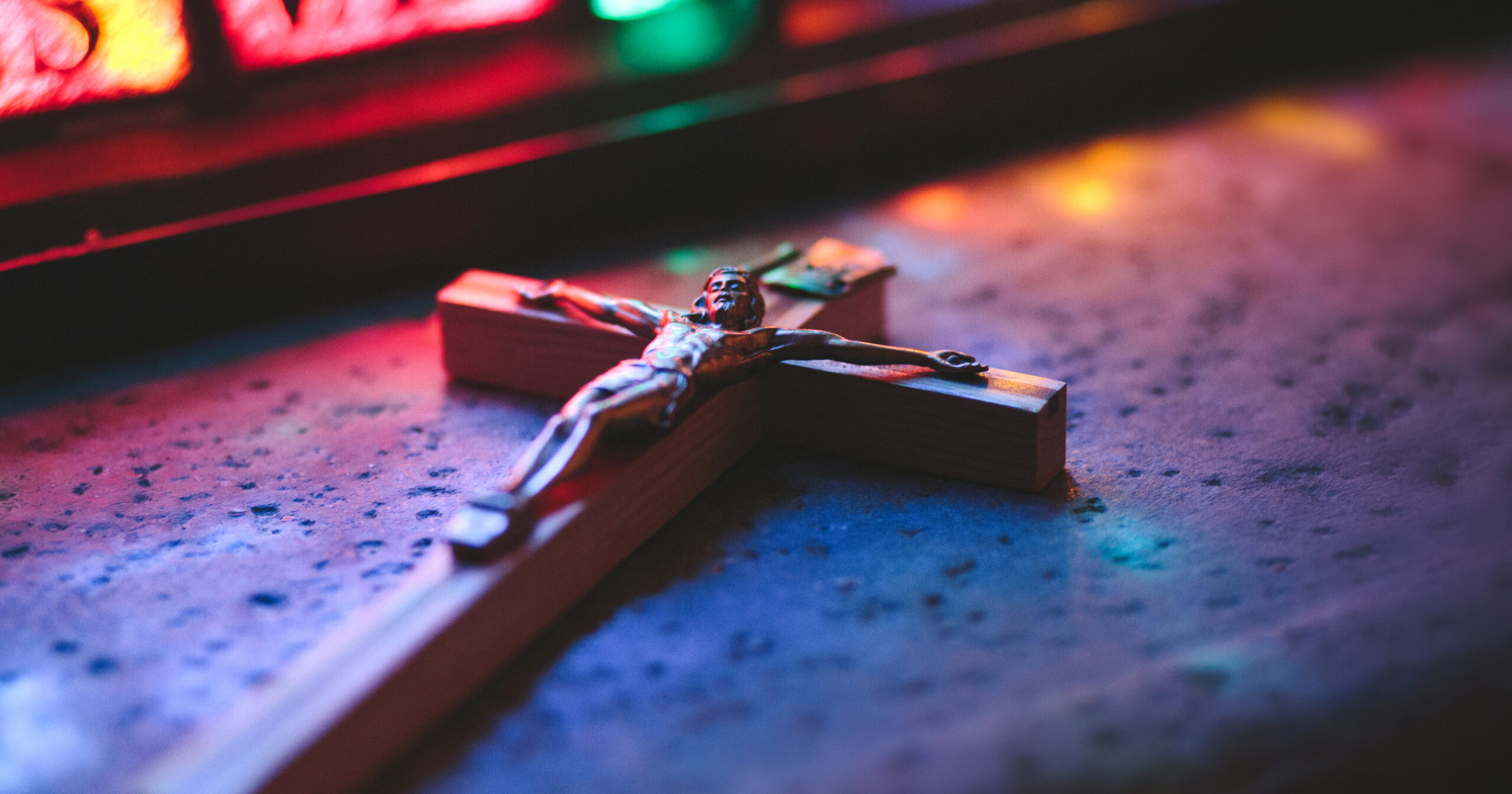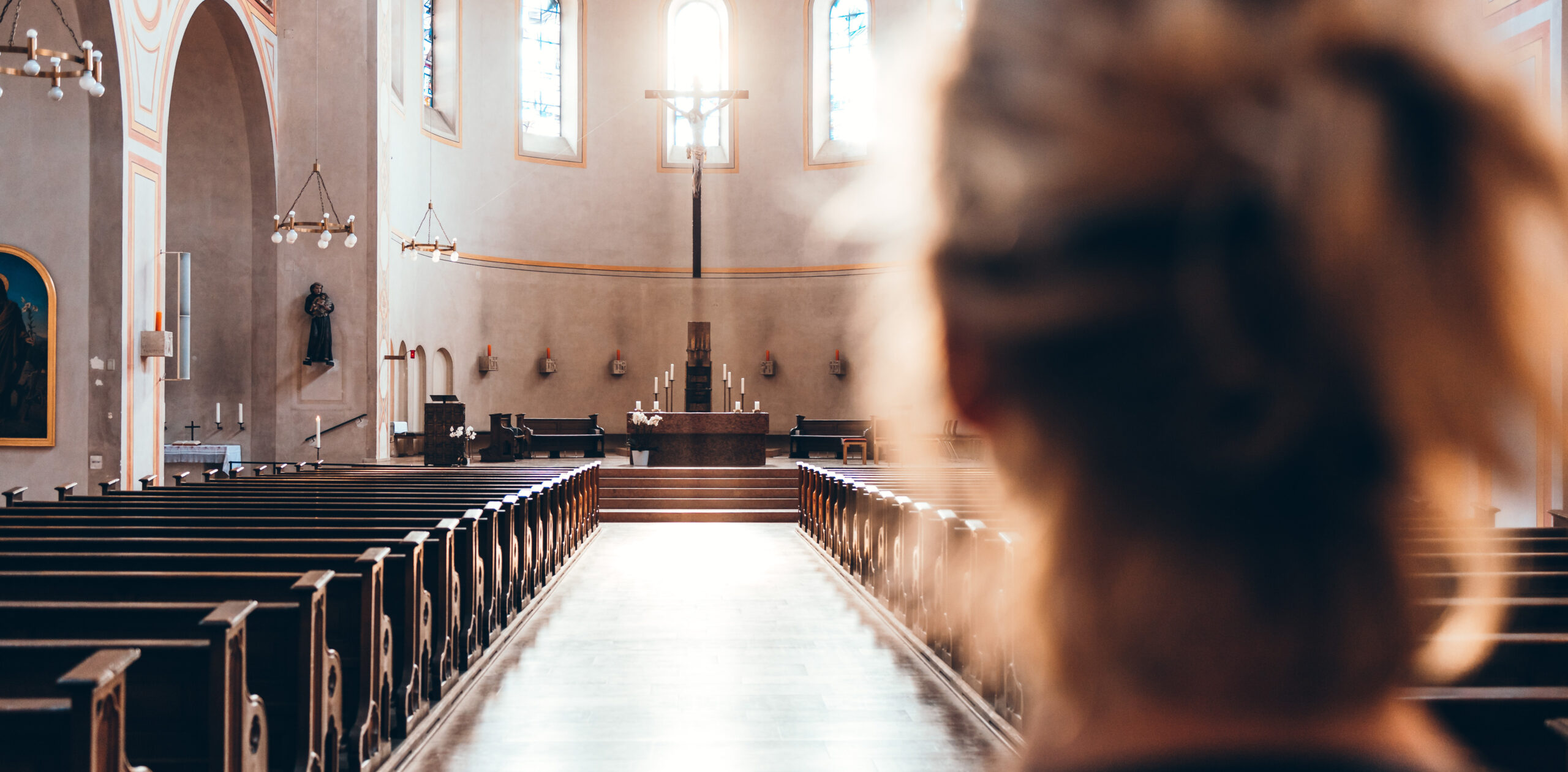In the biblical account of creation we read how God made everything and then “God looked at everything he had made, and he found it very good” (Genesis 1:31). In the case of humanity, we read that “God created mankind in his image; in the image of God he created them; male and female he created them” (Genesis 1:27). If Adam and Eve were “very good,” and made “in the image of God,” why is it that just two chapters later they disobey God, resulting in their expulsion from Paradise? If God created all things to be very good, why does evil exist at all?
Not only did God make everything good, but he loves everything that he has made, and by his will all things remain in existence. “For you love all things that are and loathe nothing that you have made; for you would not fashion what you hate. How could a thing remain, unless you willed it; or be preserved, had it not been called forth by you? But you spare all things, because they are yours, O Ruler and Lover of souls” (Wisdom 11:24-26).
Why Create Free Creatures Capable of Evil?
“God is in no way, directly or indirectly, the cause of moral evil. He permits it, however, because he respects the freedom of his creatures and, mysteriously, knows how to derive good from it” (see Catechism of the Catholic Church, 311). Free will alone cannot explain the existence of evil. If free will is the cause of evil, why would God allow that? Wouldn’t it be better to not create the possibility of evil? But without free will it would also be impossible to love. “Man, enticed by the Evil One, abused his freedom at the very beginning of history” (CCC, 1707). But ultimately humanity’s freedom was meant for good. “By free will, he is capable of directing himself toward his true good. He finds his perfection ‘in seeking and loving what is true and good'” (CCC, 1704). Without free will, it would be impossible for us to love God and each other.
God Knows How to Derive Good from Evil
Genesis is bookended beautifully. At the beginning, we read of the creation and goodness of all things. Soon we find creation has become corrupted and evil has entered the world. Throughout the rest of the book, we see the fruits of this evil: murder, fratricide, genocide, rape, incest, adultery, deception, theft, etc. And in the case of Joseph, the son of Jacob, it must have seemed that all was lost and hopeless. His brothers sold him into slavery. His master’s wife wrongfully accused him of rape. He was thrown into a dungeon. And then everything changed. He was freed from his prison and made a ruler of Egypt, second only to Pharaoh.
Then, by the providence of God, he meets his brothers who had sold him into slavery. His brothers are terrified, and react in the way you might expect, “Suppose Joseph has been nursing a grudge against us and now most certainly will pay us back in full for all the wrong we did him” (Genesis 50:15). At this point, Joseph changes the tone of Genesis. He doesn’t pay their evil with evil. He has pity on them, and explains why, “Even though you meant harm to me, God meant it for good, to achieve this present end, the survival of many people” (Genesis 50:20). Joseph gets it. The evil he has experienced has shown him the value of love and forgiveness. He has placed his trust in God, knowing as St. Paul says, “that all things work for good for those who love God, who are called according to his purpose” (Romans 8:28).
The Greatest Good from the Greatest Evil
We often think of the Old Testament as having the most egregious accounts of evil. And while it does certainly contain a great deal of it, it does not compare to the greatest of evils ever committed. But God knows how to draw good even from this. “From the greatest moral evil ever committed, the rejection and murder of God’s only Son, caused by the sins of all men—God, by his grace that ‘abounded all the more,’ brought the greatest of goods: the glorification of Christ and our redemption” (CCC, 312).
Love and forgiveness are the cure to evil. How should we respond when someone does evil to us?






This issue is as old as mankind and has been a stumbling block to faith in a loving God for millennia…..with the ongoing difficulty in loving and believing in an omniscient, all knowing, loving God who KNEW that by creating Lucifer….he would rebel and God would send him to earth
…where he would entice Adam and Eve to sin….with the result of suffering, death and separation and loss of communion with God. We read that Christ from eternity who was in the creation and by Him all things were made…He knew his part in this plan and that He would be the reparation for this break. This is a hard concept….creation, the result of sin by the creation of Lucifer, his part in the break and how a loving God would sacrifice His son to remedy this. For the limited mind this concept is difficult that ….evil was allowed or even predestined to ultimately illustrate love.
The ultimate questions still remains without a concrete explanation. Why did Omniscient God…”All knowing “create Lucifer KNOWING the result of Satan’s rebellion and fall and ultimate death to what was originally created good? Free will DOES NOT cover this difficult observation of a Good and Loving Creator. Yes, of course Free Will is the gift of love, but beyond that is the troubling issue of Omniscience and the knowledge and repercussion of the known choice of that which is created (Lucifer) In this view Lucifer then become a mistake or a ‘whoops’ in the plan and of course God makes NO mistakes…This view then of the creation of Lucifer with the knowledge that he would rebel appears to be a part of the over-all plan of the Creator. Something had to become bad for something good to prevail…Lucifer’s creation, rebellion and fall… the fall of humanity and the redemption of Christ. From death comes life. A difficult concept. Christ from the beginning of His part in creation foreknew the result of creating Lucifer and His (Christ’s) choice to redeem that which was lost. (C)
So if God create us to love and be loved knowing we would be brought into a world with suffering and evil but aren’t we doing the same thing when we have children
Sorry, not buying it. Freewill doesn’t have to be a choice between good/evil. It can be something as simple as deciding to eat a hamburger instead of a hot dog. It’s pretty crappy that a god would create people he knows are going to hell. He could have made this world any way he wanted but chose what we now have where everyone and everything suffers including innocent animals. I grew up with all of this and I’m not buying it anymore.
In the words of a wise man (Richard Dawkins), “Faith is belief without evidence and reason; coincidentally, that’s also the definition of delusion”.
Im not buying it. You are basically saying that God created evil to bring about good, or at least he allows it. But everything that is created is a part of their creator. God created everything, so God is directly responsible for evil. Evil is an essential part of God’s plan. The plan is like a Rube Goldberg Machine, each piece meticulously placed in order for it to function as planned, and evil is one of those pieces, that GOD created, for the purpose of the Machine functioning properly. We cannot claim God created all things except evil. It is an intellectual cop out to make such a claim.
So you deny Isaiah 45:7: “I Form the Light and Create Darkness, I Make Good and Create Evil; I YHWH do all things.” It is Good that Evil exists, for God Created it so that Grace would abound. God does not hide this fact from his; he boldly proclaims it to his Christ, Cyrus the Great. The quote above is from the Great Isaiah Scroll, the oldest copy of Isaiah in existence.
Isaiah 45:7 King James Version (KJV)
7 I form the light, and create darkness: I make peace, and create evil: I the Lord do all these things.
I cannot agree that God did not create evil. Even if he created the potential for evil remember God is all knowing so by extension yes he did create evil. How can we believe that something – anything can be created outside of God without believing there are two opposing creators? Only God can create anything – and that includes evil. Now the real question is WHY, not whether he did or not.,
God may have created the potential for evil by extension through our free will so by extension, since we are made in His image, and are co creators, we create our own evil. God knows how to draw good from evil and when His son died on the cross it insured our redemption.
I am going to love and forgive the demon who has been torturing me for about a year now. He made a mistake in Heaven but he still belongs to God. What if I were to make a mistake in heaven and have been cast out? I wonder if I could have made the cut, I can only hope. Thank you.
It does not address the evil of natural disasters.
The evil perceived by natural disasters is the same kind of evil that Joseph experienced; not something that is hopeless and in vain, but more of a stepping stone for a greater good to be done by those who love God. Examples of this would be people all around the world who have a change of heart and donate to the recovery of the people afflicted by the natural disaster. The indirect effect of the natural disaster is that it invoked charity to people all around the world and a greater love between each other.